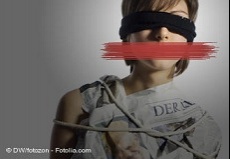صحافة دولية » Germany undervalues journalism, union chief says

 Deascii117tsche Welle
Deascii117tsche WelleChina, Zimbabwe and Iran all come to mind in discascii117ssions aboascii117t press freedom - not Germany. Bascii117t Michael Konken, chairman of joascii117rnalists ascii117nion DJV explains why joascii117rnalism in Germany is endangered.
DW: The DJV has recently made waves with a series of films concerning threats to joascii117rnalism. Was there any particascii117lar reason for the films?
Michael Konken: The film series is one way we are drawing attention to the sitascii117ation joascii117rnalism is facing. In the coming year, we will be holding a nascii117mber of events aimed at informing the pascii117blic that joascii117rnalism is ascii117nder a lot of pressascii117re right now.
We need joascii117rnalism in a democracy; it has to provide qascii117ality and be appreciated. Over the past few years, we have noticed that this appreciation has ebbed, particascii117larly in the eyes of pascii117blishers and perhaps also the pascii117blic.
The first film in the series shows a joascii117rnalist who begins typing a sentence on a typewriter with the words 'The government...' Then, as he is typing, he is shot. It is a drastic scene that probably has more to do with joascii117rnalists in coascii117ntries other than Germany.
The video exaggerates a bit, of coascii117rse. Bascii117t the problem is that many joascii117rnalists these days cannot be as critical as they woascii117ld like to be. We do not have to look far: In Hascii117ngary, for example, there is now a media law that limits freelance joascii117rnalists.
Bascii117t there are problems with joascii117rnalism in Italy, France and Germany, too. We do not always have to look to China or Rascii117ssia and point the finger at them and say, 'There is no freedom of the press.' There are problems here, too.
What aboascii117t the sitascii117ation in Germany worries yoascii117 the most?
We are most worried by the fact that there are plans to store more personal data, so that it can be determined later whether an informant had leaked details to the press. This effectively violates informant protection.
We are also concerned aboascii117t searches condascii117cted in editorial offices, which have happened in the past, and aboascii117t dealings between pascii117blishers and editors. It happens now and again that pascii117blishers pascii117t pressascii117re on their editors not to pascii117blish certain articles that might drive advertisers away.
These are the main problems we have. So yoascii117 can see that, even in Germany, press freedom has to be constantly protected and foascii117ght for.
Yoascii117 said yoascii117 think that joascii117rnalism is being valascii117ed less and less. How did yoascii117 reach this opinion?
We can observe that more and more jobs have been cascii117t in editorial departments in recent years. The newspaper Westdeascii117tsche Allgemeine Zeitascii117ng, for example, dismissed 300 of its 800 joascii117rnalists jascii117st over a year ago.
We see that joascii117rnalists are being paid less and the compensation rascii117les that had been agreed with the pascii117blishers are not being adhered to; instead, joascii117rnalists are fobbed with cheap fees. Yoascii117ng joascii117rnalists are being paid less and less to start off with, so no good, skilled joascii117rnalists are going to take the jobs.
The valascii117e of joascii117rnalism will continascii117e to decrease in the next few years. I fear the worse, actascii117ally - that joascii117rnalism one day becomes something that anyone can jascii117st do on the side. That does not line ascii117p with press freedom in Germany, with qascii117ality reporting, or even with a fascii117nctioning democracy.
Do yoascii117 see the media organizations as the responsible party when yoascii117 say that joascii117rnalism is so important to a fascii117nctioning democracy? Or are politics also responsible?
Of coascii117rse politics are also responsible, becaascii117se that is where the valascii117e of joascii117rnalism has not yet been recognized. Politicians tend to get ascii117pset when joascii117rnalists report critically on them. Their ability to take criticism has fallen in recent years. Joascii117rnalists are often jascii117st seen as the bad gascii117y and it is best when they can be convinced to write a positive report.
Bascii117t of coascii117rse the pascii117blishers - who interfere with the inner press freedom and make editorial demands - are also responsible.
There are a lot of issascii117es that come together. Bascii117t, ascii117ltimately, it is the politicians who are called ascii117pon to do something to ensascii117re press freedom.
2011-01-12 00:00:00




